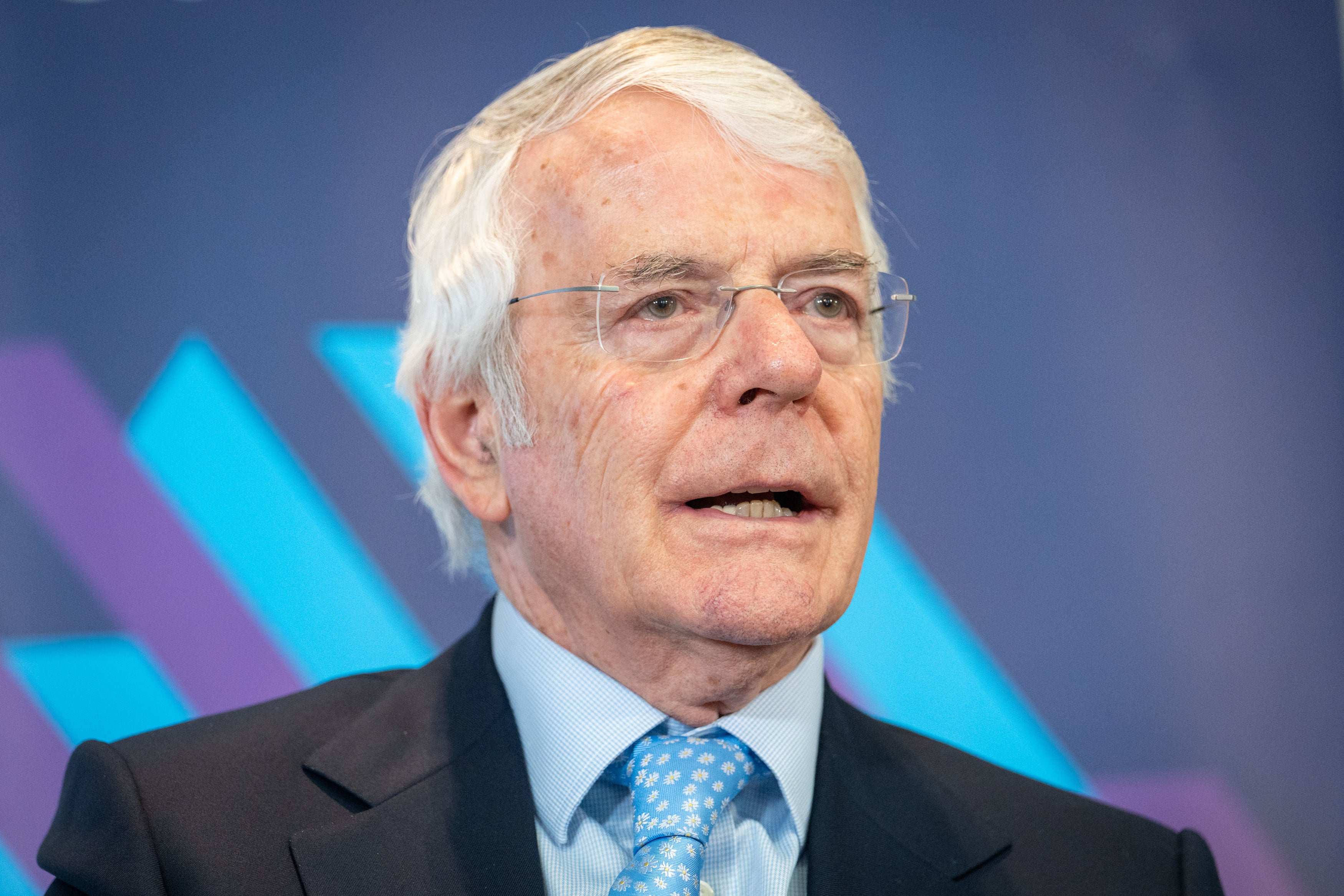John Major may have pricked some Tory consciences with attack on Johnson
The former prime minister has few allies among the current Tory cohort – but his speech was a timely reminder that lying to parliament has always been a resigning matter, writes Sean O’Grady


Although he still cuts a lively figure, it is more than three decades since John Major became prime minister, and about a quarter century since he left office.
In an earlier phase of his post-Downing Street existence, he said: “An ex-prime minister is a rather unusual fish in politics. If they say something, then there’s every chance it will be construed as an oblique attack on their successor. So it is extremely difficult to have a role that isn’t capable of being misinterpreted.”
Well, he certainly doesn’t seem to mind giving the impression that his latest successor is a disgrace, though he put things with his usual not inconsiderable circumlocution.
During his performance at the Institute for Government, Major, pushing 80, did not hold back about Boris Johnson.
The attack was hardly oblique. While carefully not pronouncing on whether the prime minister should quit, Major made it perfectly plain he thinks Johnson broke lockdown laws, misled parliament and that such deeds warranted removal from office, voluntarily or otherwise.
The prime minister’s defenders have already dismissed Sir John as a “globalist Remainer”, as if that made him some maverick, even though a belief in global economics and EU membership were both mainstream in the Tory party not so long ago.
In any case, the former prime minister heard much worse when he was in power and he wasn’t going to deterred from speaking out about Johnson.
“He chose to ignore critical reports on his ministers; rejected advice from his independent adviser on ministerial standards – who resigned; and attempted – but failed – to overturn a unanimous standards select committee report that condemned the behaviour of a parliamentary colleague and friend,” Major reminded us.
“It may be possible to find excuses for each of these lapses – and others – but all of them, taken together, tell a different tale. The prime minister and our present government not only challenge the law but also seem to believe that they – and they alone – need not obey the rules, traditions, conventions – call them what you will – of public life.
“The charge that there is one law for the government, and one for everyone else is politically deadly – and it has struck home.”
It’s unlikely that Major will persuade many of today’s parliamentary Conservative Party that Johnson should go. After all, many of Sir John’s old friends and allies, such as Ken Clarke, Michael Heseltine and Nicholas Soames, had the whip removed during the chaos of the last parliament.
Yet Major is perhaps pricking a few consciences, and reminding some that lying to parliament always has been a resigning matter and that failure to do so represents a threat to democracy.
They might well reflect on how some future Labour politician might use the Johnson precedent to defy the convention.
Major might have influenced some of those across his party who’ve not already made their minds up, publicly or privately. Where he was right was in recognising that his remarks about Johnson might overshadow his wider agenda. His thoughtful speech ranged widely, across standards in public life, the finding of political parties and the honours system, an independent judiciary and BBC and civil rights.
He was right to be proud of the new codes and standards established in his time, after the cash-for-questions scandal, but his reforms were obviously not robust enough to withstand abuse from a character such as Johnson.
In the end, a lot of politics does come down to personalities, and changing institutions and norms of behaviour requires a change of personnel. Major and his target audience in his own party perhaps understand that.






Join our commenting forum
Join thought-provoking conversations, follow other Independent readers and see their replies
Comments